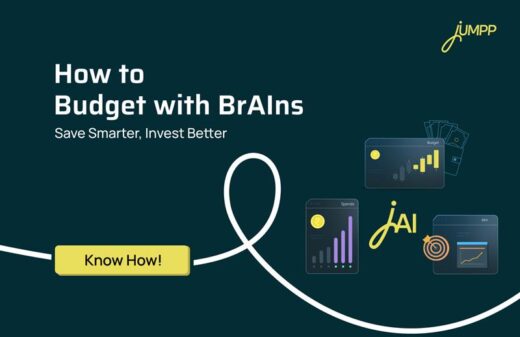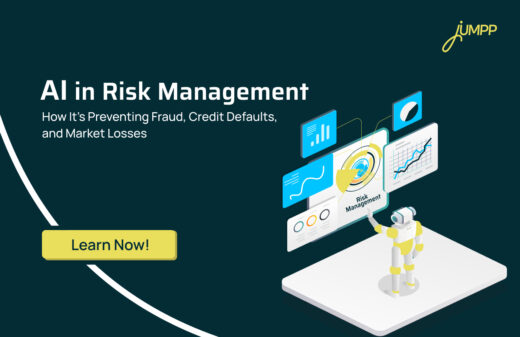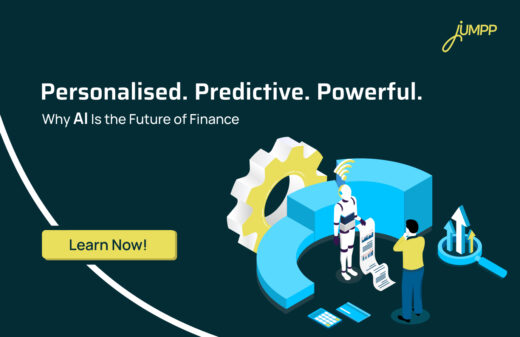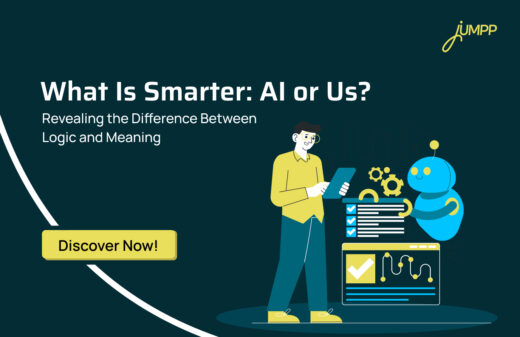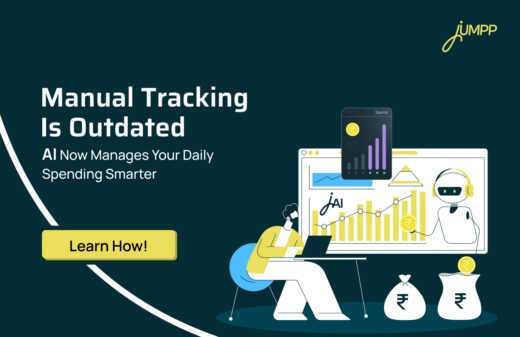Is AI Investment in India the Shortcut Traders Have Been Waiting For?

For most of us, the first investments have always been familiar. A fixed deposit in the local bank. Or a life insurance policy taken out for security. And yes, a little bit of gold was kept in our lockers because tradition demanded it. These choices have often felt safe, predictable, and almost cultural. But every few decades, something new emerges. In the 90s, it was equities. In the 2000s, it was mutual funds. And today, it is AI Investment in India.
AI in investment, AI in finance, and AI in banking, you can hear it all.
Nowadays, you will also find young people building AI tools, training AI models, and pitching AI-powered ideas with the same energy that once surrounded IT startups. Not only this, there are ample institutes that have introduced AI courses. At the same time, global venture capitalists are searching for the next Indian unicorn.
Now, what do you think? Will Indians treat AI investment as just another gamble, like chasing the next cryptocurrency, or will they see it for what it could be, a genuine wealth-building opportunity that defines the next chapter of our economy?
Let’s see!
What is AI for Investment
When people hear the word Artificial Intelligence in investing, they tend to get scared. The truth is much simpler. AI is just another way of finding patterns quickly and acting on them.
In the past, an analyst would spend hours going through balance sheets or listening to conference calls. Now AI can do the same work in minutes, and it can do it across hundreds of companies at once.
It can scan market trends, market pulse, profit margins, sudden changes in earnings, or even whether insiders are quietly buying or selling shares. It can read unstructured text, like news articles or result notes, and turn that into signals about sentiment. It can even watch over a portfolio in the background, noticing if risk is building up or if stocks are moving together in ways that could affect your returns.
For a retail investor, this does not mean having a robot pick stocks for you.
This means practical ways like-
Smarter stock screeners in your trading app
News feeds that flag whether the market mood is positive or negative
Alerts that tell you when your portfolio has drifted from your plan.
AI is not replacing investing. It is quietly becoming the toolkit behind smarter investing decisions.
Try jAI, it can spot your spending patterns, set realistic budgets, and get personalised insights for you!
What is Quantum AI Investment in India?
Quantum AI investment simply means combining artificial intelligence with quantum computing. While AI is about finding patterns and acting on them quickly, quantum computing takes it further by handling calculations at speeds that traditional computers cannot match.
In theory, this combination could help us discover deeper insights and build more accurate investment strategies.
In India, this idea is still at a very early stage. Research labs and startups in Bangalore and Hyderabad are experimenting with quantum algorithms. Global investors are showing interest.
But for the everyday investor, quantum AI is not yet something practical or widely available.
For now, quantum AI investment in India should be seen as an area to follow with curiosity, not a tool to depend on. It is early, experimental, and still years away from retail use.
AI in Investment Banking
Nowadays, instead of people manually reading and analysing thousands of pages of financial statements or regulatory filings, AI in investment banking can scan all that data in minutes.
When we talk about mergers and acquisitions, which is when one company wants to buy or merge with another, AI models have made the task easier.
They can look at past deals, industry trends, and market mood to predict whether the deal might succeed. In risk management, AI can run hundreds of “what if” scenarios and show how a portfolio might behave if the market crashes, if interest rates change, or if currencies fluctuate.
Some Indian banks have already started using AI in areas like credit risk and fraud detection. It is still early, but the direction is clear. Investment banking in India is becoming more data-driven and less dependent on manual number calculations.
AI in Investment Management
If investment banking is about deals and big transactions, investment management is about looking after money, portfolios, mutual funds, and long-term wealth. Here, too, AI is playing a bigger role.
Traditionally, fund managers used their judgment supported by basic models to decide how much to invest in different assets. Now, AI gives them sharper tools.
For instance-
- Portfolio optimisation helps in finding the best possible mix of stocks, bonds, and other assets.
- Automatic rebalancing means shifting the portfolio when markets move without waiting for quarterly reviews.
- Smarter portfolio diversification helps in spotting hidden opportunities that humans might miss.
- Sentiment tracking means using AI to see how companies are performing on environmental, social, and governance (ESG) factors.
When you invest in a mutual fund or ETF, you may not see the AI at work, but you benefit from the fund manager using smarter systems in the background.
Thus, AI in investment management is about making portfolios sharper, more responsive, and more aligned with risk.
AI for Investment in India: Things You May Get Wrong
There are some common myths and real risks that every investor in India should understand before putting money into AI-driven tools or funds.
Myth 1: AI will beat the market every time.
Many of us may assume that because AI investment tools can process huge amounts of data quickly. They will always pick the winning stocks or predict market moves perfectly. This is not true.
AI investment can improve decision-making and speed. But markets are influenced by human behaviour, global events, and unforeseen shocks.
AI for investment is a tool to help make better decisions, not a guaranteed path to profits.
Myth 2: AI replaces human judgment completely.
AI in investment management can analyse trends, spot patterns, and suggest actions. But it cannot understand your goals, risk tolerance, or life situation. A model cannot decide whether it you should stay invested in a falling market or rebalance your portfolio.
Human judgment and financial discipline are still essential.
Myth 3: AI alone can make you rich instantly
Please don’t assume that AI is the way to help you earn profits. It is simply a way to speed up the tasks which took a lot of time earlier.
It helps analyse data, spot trends, and reduce human error, but it cannot replace discipline, diversification, and patience.
Smart investing still comes down to understanding your goals and making consistent choices.
AI Investment in India: Understanding the Risks Before You Start
1. Over-reliance on technology
You may trust AI tools blindly, assuming they will always make the right calls. Markets are unpredictable, and human judgment is still essential.
2. Limited understanding of models
Most retail investors do not fully know how AI models work. Decisions based purely on AI outputs can be risky if the underlying assumptions are misunderstood.
3. Data quality issues
AI can only be as good as the data it analyses. In India, inconsistent reporting, missing data, or outdated information can lead to inaccurate signals.
4. Market volatility
AI models rely on historical data to predict trends. Sudden events like global crises, policy changes, or market shocks can cause AI predictions to fail.
5. False sense of security
AI may flag opportunities or risks quickly, but it cannot guarantee profits or prevent losses. You might end up taking bigger risks, thinking AI “has it covered.”
6. Accessibility and cost
Advanced AI tools or quantum AI models are often expensive or only available to institutional investors. Retail investors may not get the full benefit.
7. Overfitting and misjudged patterns
Sometimes AI finds patterns that appear meaningful in historical data but do not hold in real market conditions, leading to poor investment decisions.
India’s Place in Global AI Investment
India is on the global map for private AI funding. The UN’s Technology and Innovation Report 2025 places India at 36th on the 2024 Frontier Technologies Readiness Index.
The UN also highlights that among developing economies, only China and India attract significant private AI investment. Not only this, in 2024, the government cleared the IndiaAI Mission with ₹10,300 crore over five years.
The plan is to make computing power, datasets, and talent easier to access and to support indigenous models for Indian languages and use cases.
An IBM study found 87 percent reported progress in AI adoption and 76 percent reported positive ROI.
With over 13 million software developers, it is the second-largest in the world after the US. Initiatives like the India AI Mission and research centres at IITs are driving innovation, though most corporate AI R&D spending is still concentrated in 100 global firms from the US and China.
Conclusion
India is at a moment much like the IT services boom of the 1990s. Back then, few imagined that Indian companies could lead the world in outsourcing.
Today, AI investment in India shows the shift in the future of finance and technology. For investors, this means opportunities do exist, but careful learning and disciplined use of AI for investment are essential to benefit from it.
AI Investment- FAQs
AI can be a tool to help you make smarter investment decisions, but it is not a magic formula. You should not rely entirely on AI investment tools.
AI investments use technology to analyse data, spot patterns, and help guide decisions across stocks, funds, or portfolios.
Yes, you can use AI-powered tools, screeners, or apps to assist with investing. But your judgment, research and goals still matter. You should be careful.
AI trading exists and is used by professionals and fintech apps. AI in trading helps with smarter alerts, screeners, or portfolio suggestions.
You can start exploring trading apps that offer data-powered analysis or insights for stocks, funds, ETFs, mutual funds, etc.
You must look at platforms, mutual funds, or apps that use AI tools for smarter decision-making.
AI helps you make smarter choices faster, spot trends, and reduce errors. However, it is not the direct way to make money. You need to be careful while using AI for investment, trading or banking.

